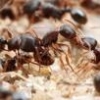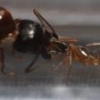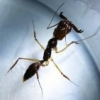Hello,
I recently acquired a queen Prenolepis imparis with a few workers, but no brood. I've only had them for a few days but they don't seem to be eating and already two worker repletes died. Right now they're in a test tube setup. I've tried feeding them honey water, straight honey, sugar water, cut up mealworms, and apple yet they have not touched any of it.
Right now all the workers expect one is a replete. Are they not eating because they already have lost all repeats? Also when can I expect the queen to start laying eggs? I understand this a much slower growing species but I'd just like to just make sure nothing out of the ordinary for these ants is going on.
Thank you,
Jess



















